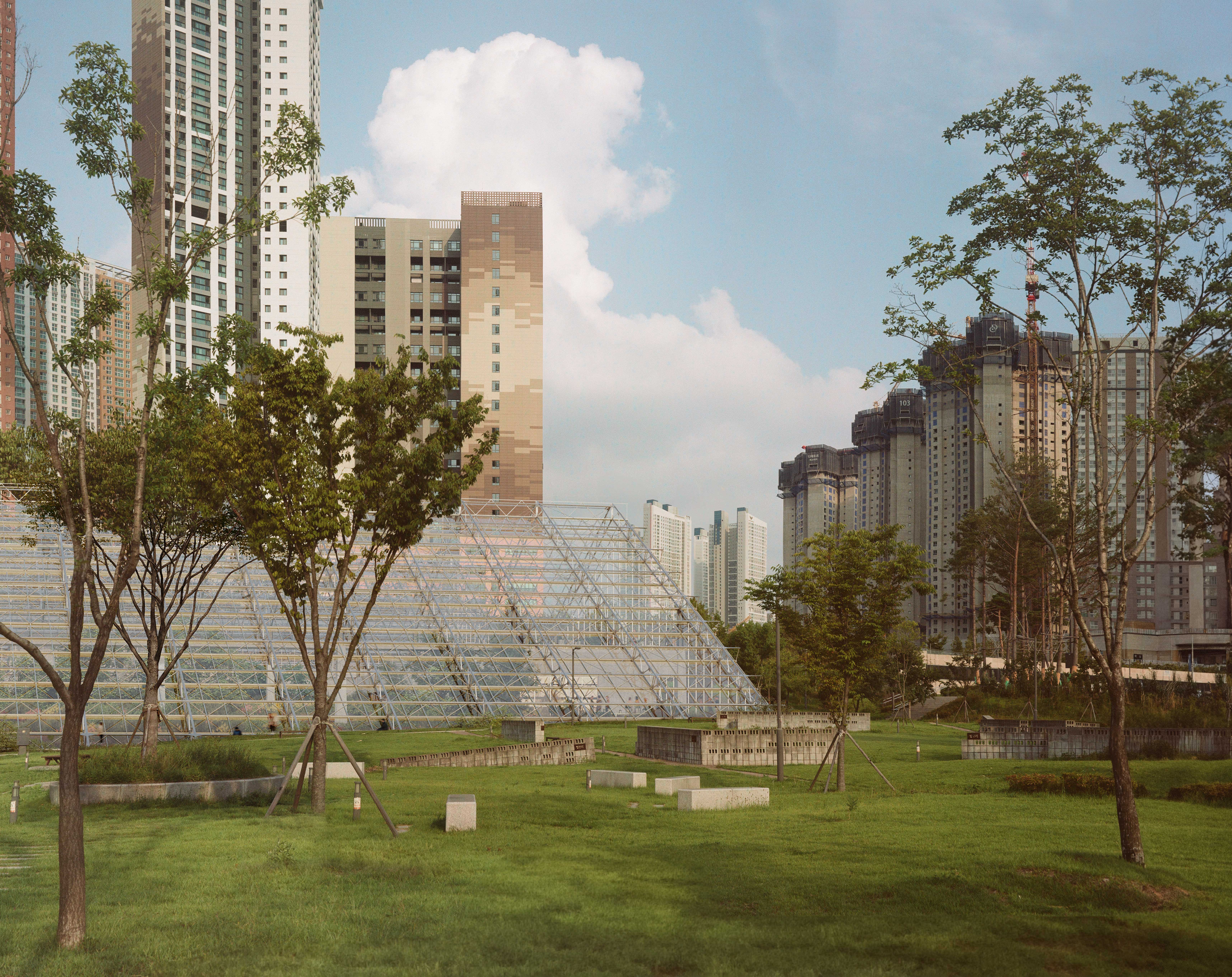102
Yeong Cheon Heritage Museum
The true picture of the past flits by. The past can be seized only as an image which flashes up at the instant when it can be recognized and is never seen again.
In his article "On the Concept of History," Benjamin (1940) raises the questions the authenticity of the portrayal of the past. He suggests that the past is a flashing image that could never be seen again.
A typical museum in the past would religiously display artefacts as if they were sacred objects to be worshiped. Against the white abstract walls and stored inside their glass vitrines, the museum decontextualises these artefacts as objects of pure form – even Art.
Walter Benjamin
In his article "On the Concept of History," Benjamin (1940) raises the questions the authenticity of the portrayal of the past. He suggests that the past is a flashing image that could never be seen again.
A typical museum in the past would religiously display artefacts as if they were sacred objects to be worshiped. Against the white abstract walls and stored inside their glass vitrines, the museum decontextualises these artefacts as objects of pure form – even Art.
Sharing a similar sentiment with Benjamin, proposal is rethinking the nature of
the museum. A new museum in Yeoncheon should fundamentally question the
cultural value of temporary experiences of the past, exhibiting objects in
their pure form. This would involve creating a relationship between past images
and present actions through the integration of actual production activities
(industry) in the region. Therefore, we propose a ‘working-museum’, one that
invites local vineyard production activities that has characterised Yeongcheon
within the site. In this way, the museum could exhibit culture in its true form
- empowering a cultural continuity. This is a museum not only of Yeongcheon's
past but also of its present.
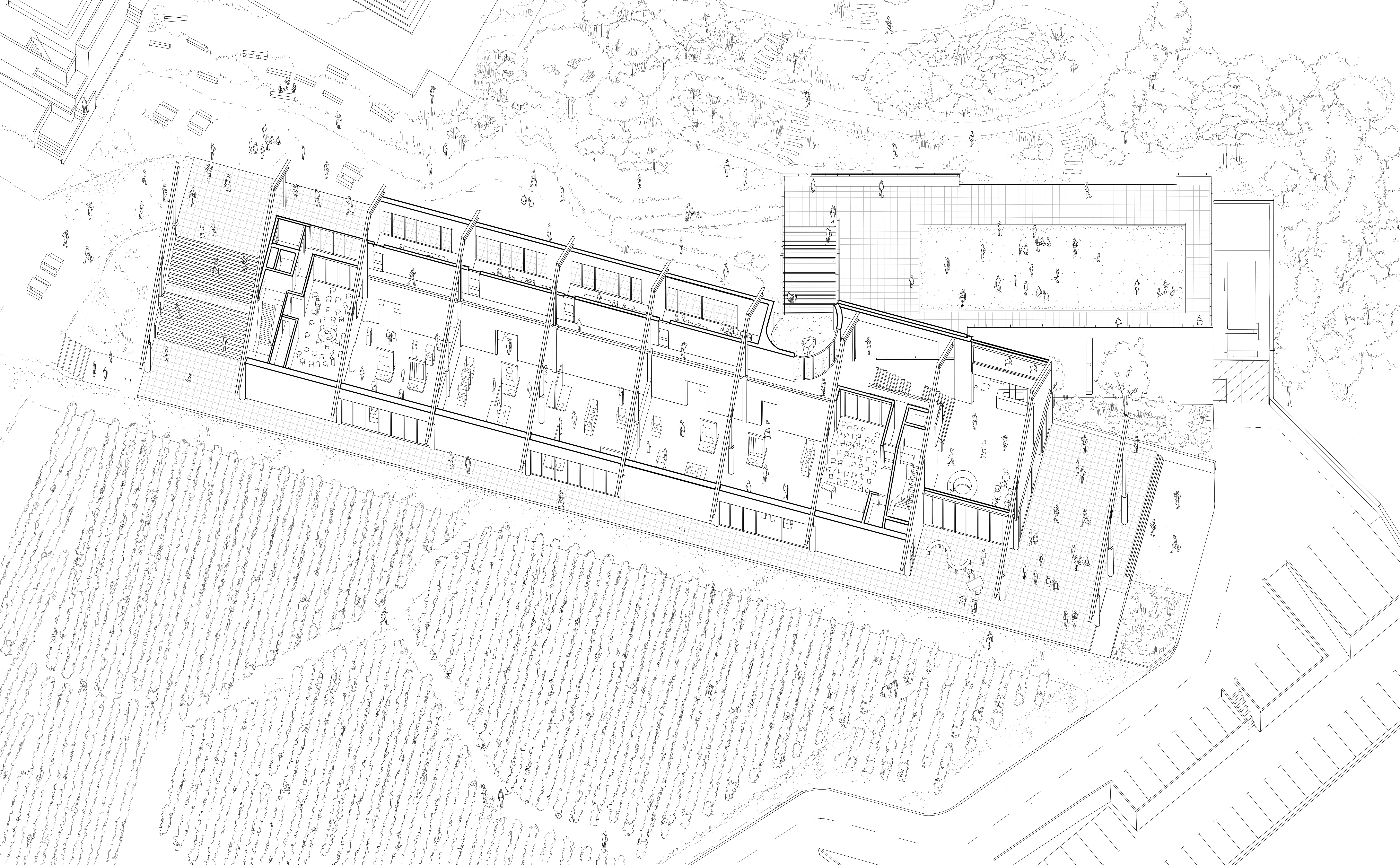
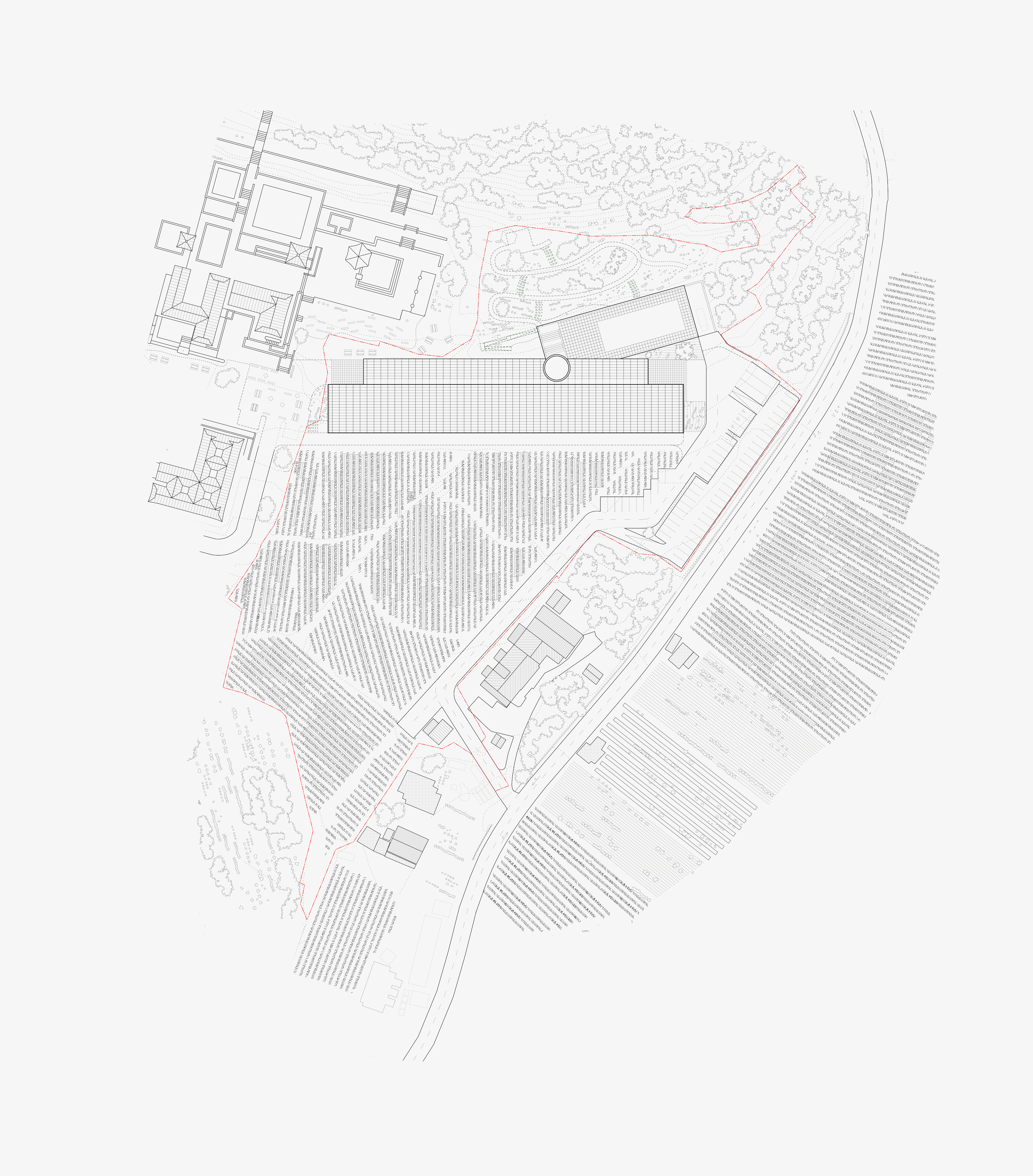
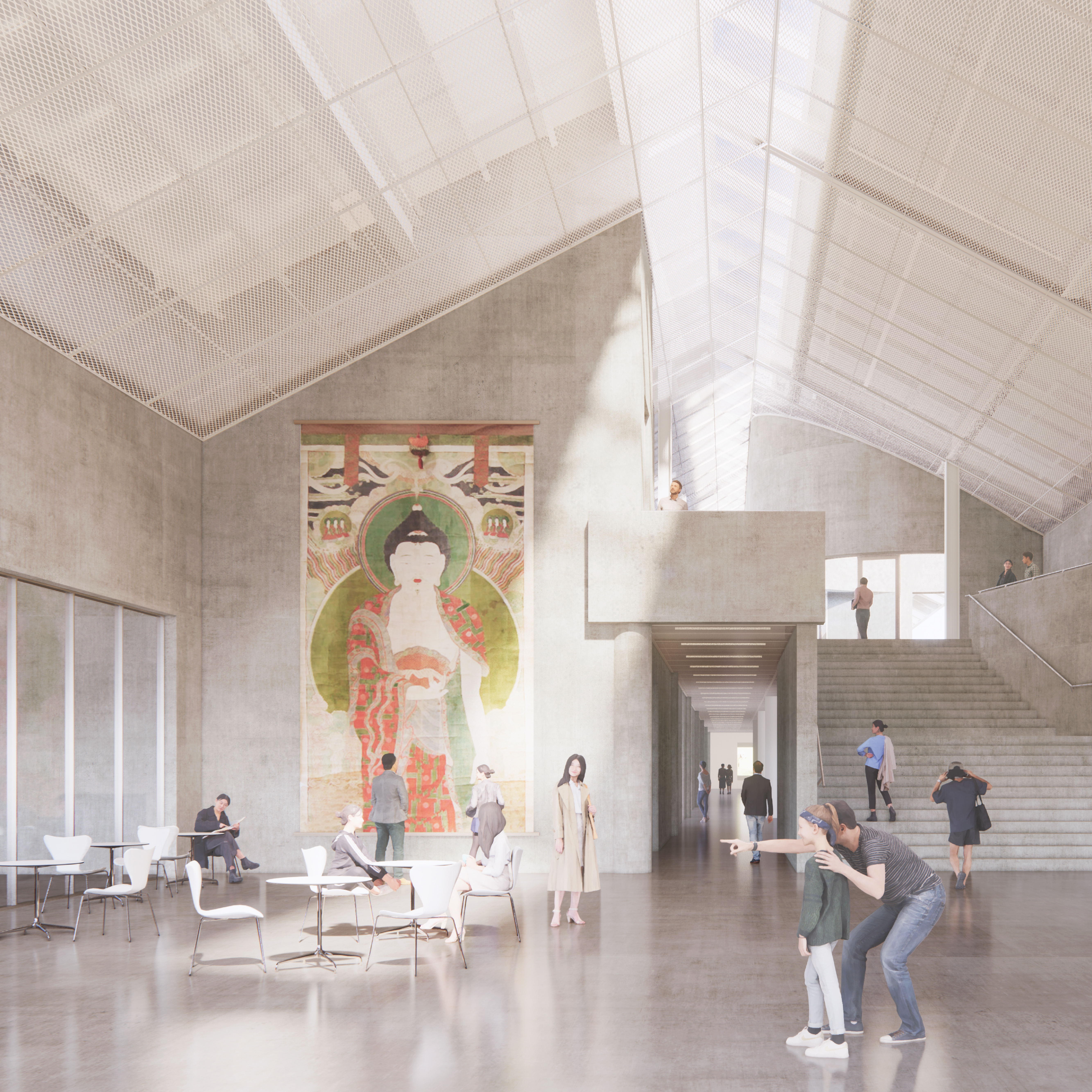
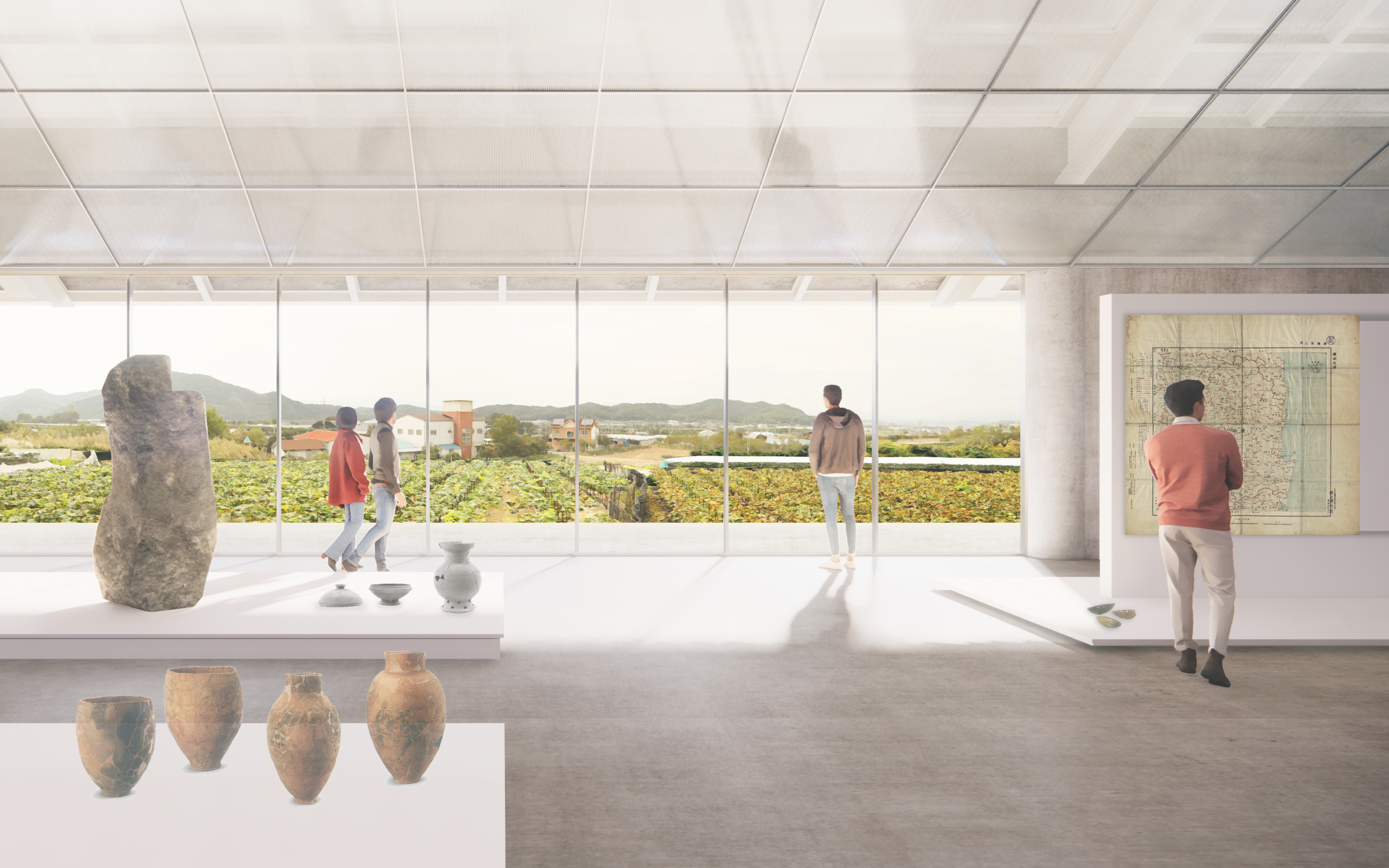

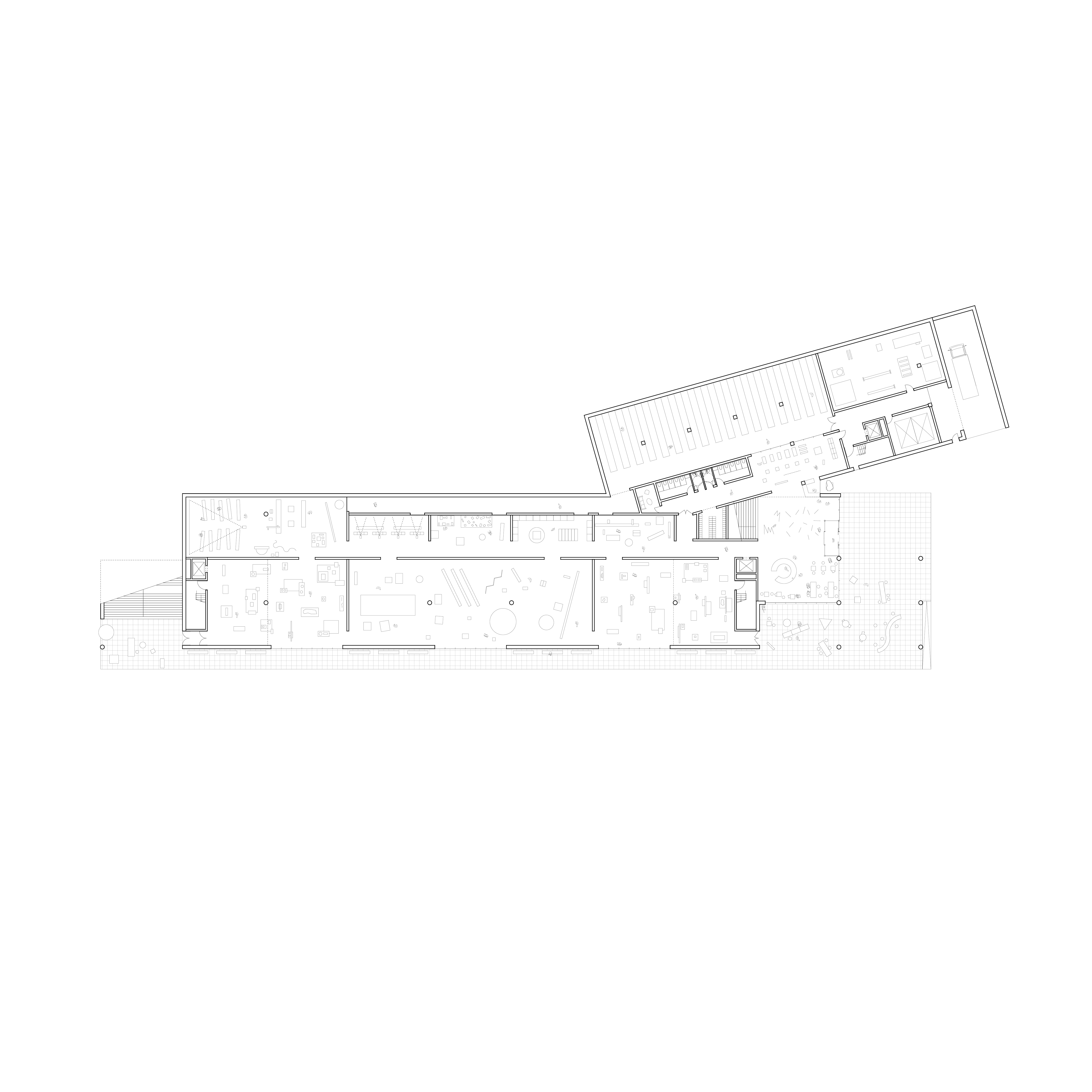

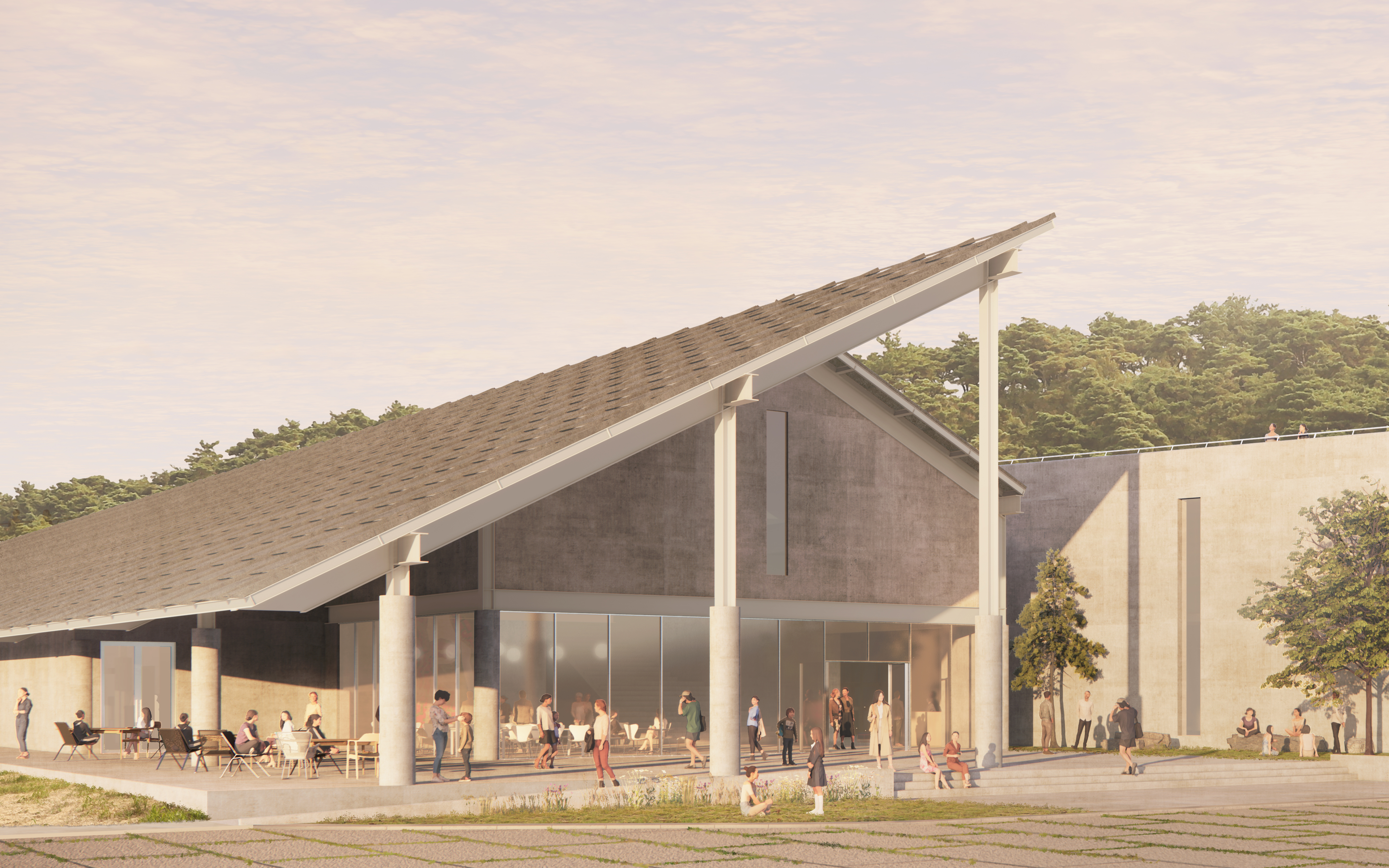
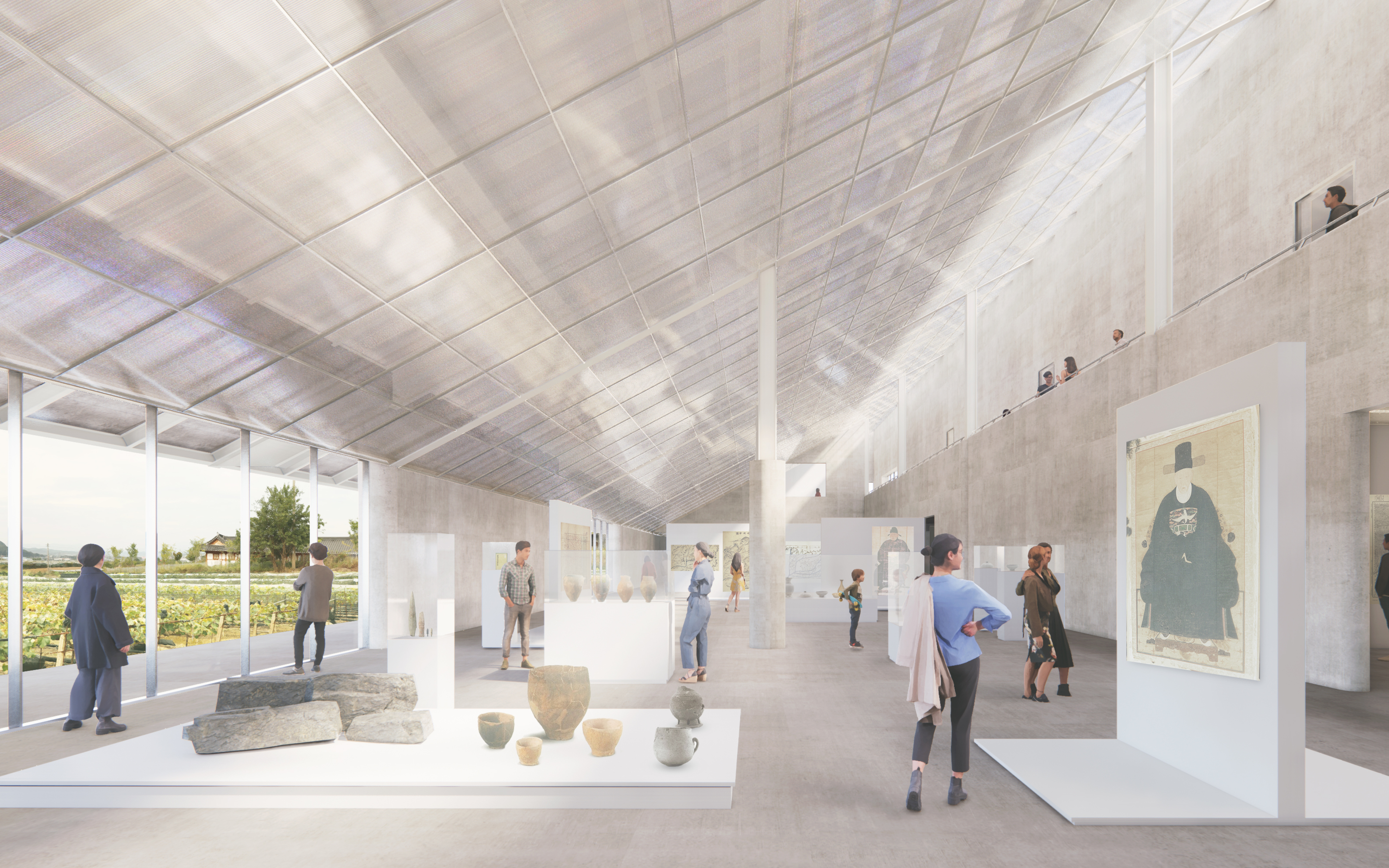
LOCATION
Yeongcheon, South Korea
SCOPE
Competition - 3rd runner-up
BUILDING AREA
4160 m2
SITE AREA
24400 m2
